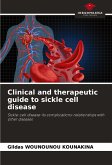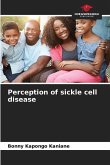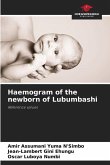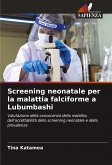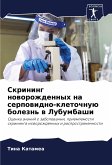Sickle cell disease is an autosomal recessive genetic disorder of hemoglobin. It results from a point mutation in the 6th codon of the beta -globin gene (on chromosome 11), followed by the substitution of valine for glutamic acid in the hemoglobin chain. In developing countries, it is often diagnosed late due to the high cost and complexity of conventional diagnostic methods. The aim of this study was to determine the diagnostic reliability of the Sickle SCAN® test in neonatal screening with reference to Hb electrophoresis in Lubumbashi.The present study showed that the Sickle scan test is a reliable, beneficial and efficient tool that we recommend for systematic, large-scale screening for sickle cell disease in the DRC.
Bitte wählen Sie Ihr Anliegen aus.
Rechnungen
Retourenschein anfordern
Bestellstatus
Storno


